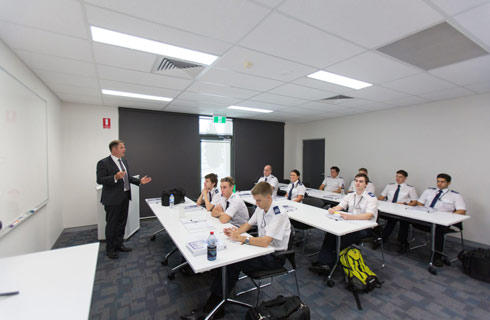Bachelor of Science in Petroleum Engineering

学历文凭
Bachelor Degree

专业院系
石油工程师

开学时间

课程时长

课程学费

国际学生入学条件
Admission will be granted to students who meet the following standard:
A minimum grade point average of 2.5 on a 4.0 scale for all previous coursework, including transfer coursework.
English Proficiency:
TOEFL iBT or TOEFL iBT Special Home Edition: 79 (18 minimum subscore)
TOEFL paper-delivered test: 60 (18 minimum subscore)
IELTS: 6.5 (6.0 minimum subscore)
PTE Academic: 53
IDP—雅思考试联合主办方

雅思考试总分
6.5
了解更多
- 雅思总分:6.5
- 托福网考总分:79
- 托福笔试总分:160
- 其他语言考试:PTE Academic 53
CRICOS代码:
申请截止日期:请 与IDP联系 以获取详细信息。
课程简介
The overall program mission for the B.S. degree in chemical or petroleum engineering is to provide a modern chemical or petroleum engineering education with proper balance between theory and practice. Graduates are prepared for professional practice in industry or government and for post-undergraduate training in chemical or petroleum engineering, medicine, etc. In addition to scientific and engineering training, students receive training in educational skills and in the humanities and social sciences.<br><br>Petroleum engineering is the branch of engineering concerned with the drilling, recovery, production, and distribution of petroleum and natural gas. It includes knowledge of the properties of fluids and rocks in surface and subsurface environments as well as methods of exploiting the economic production of oil and gas from petroleum reservoirs. A major subdivision at KU is reservoir engineering, or the development of processes to improve production from oil and gas reservoirs. Reservoir engineers use sophisticated mathematical techniques and computer technology to obtain optimum production. Through such techniques, petroleum engineers continue to extract oil and gas from reservoirs that only a few years ago would have been considered uneconomical. This branch of engineering is somewhat different from the other in that production is far removed from physical observation.
相关申请

预科

奖学金

实习机会

在校学习

跨境学习

校园授课-线上开始

在线/远程学习
学校排名
世界排名
401
数据源:泰晤士高等教育世界大学排名
本校相关课程
传播学文学学士

学历文凭
Bachelor Degree
下一个开始日期
课程费用总额
经济学理学学士

学历文凭
Bachelor Degree
下一个开始日期
课程费用总额
Bachelor of Science in Astronomy

学历文凭
Bachelor Degree
下一个开始日期
课程费用总额
Bachelor of Arts in Astronomy

学历文凭
Bachelor Degree
下一个开始日期
课程费用总额
Bachelor of Arts in Psychology

学历文凭
Bachelor Degree
下一个开始日期
课程费用总额
药学研究理学学士

学历文凭
Bachelor Degree
下一个开始日期
课程费用总额
其他相关课程
Bachelor of Science in Engineering Sciences - Petroleum Engineering
加州州立大学贝克斯菲尔德分校
泰晤士高等教育世界大学排名:

学历文凭
Bachelor Degree
下一个开始日期
课程费用总额
石油工程技术学士学位[文凭]

卡普顿大学
泰晤士高等教育世界大学排名:

学历文凭
Bachelor Degree
下一个开始日期
课程费用总额
石油工程理学硕士

堪萨斯大学
泰晤士高等教育世界大学排名:387

学历文凭
Masters Degree
下一个开始日期
课程费用总额
Bachelor of Science in Petroleum Engineering

休斯顿大学
泰晤士高等教育世界大学排名:480

学历文凭
Bachelor Degree
下一个开始日期
课程费用总额
Bachelor of Science in Petroleum Engineering

德克萨斯农工大学学院站分校
泰晤士高等教育世界大学排名:

学历文凭
Bachelor Degree
下一个开始日期
课程费用总额
Master of Science in Petroleum Engineering

德克萨斯大学奥斯汀分校
泰晤士高等教育世界大学排名:

学历文凭
Masters Degree
下一个开始日期
课程费用总额




